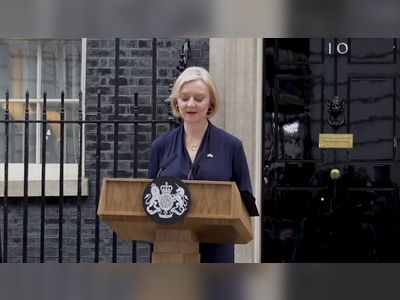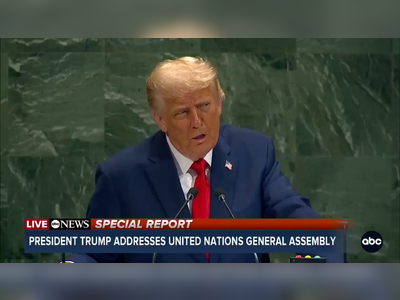UK Announces Reversal of Income Tax Hike Plans Ahead of Budget
Chancellor Rachel Reeves opts not to raise income tax rates as improved fiscal forecasts ease pressure, triggering market turbulence
Chancellor Rachel Reeves has abandoned plans to raise income tax rates in the upcoming November 26th budget, citing improved forecasts from the Office for Budget Responsibility as the deciding factor.
Her reversal comes after earlier indications that higher taxes would be necessary to plug a fiscal gap estimated in the tens of billions of pounds.
Financial markets responded sharply to the announcement, with the yield on ten-year UK government bonds climbing to around 4.57 per cent and the British pound falling by nearly 0.4 per cent against the US dollar.
The surge in borrowing costs marks the biggest one-day rise for gilts since early July.
Investors had taken reassurance from recent signals that the government was preparing for tax increases.
The decision to reverse course is feeding concerns that the revenue strategy may now depend on a patchwork of smaller tax rises rather than a decisive increase in income tax.
One economist warned that this could undermine credibility and complicate monetary policy decisions by the Bank of England.
Reeves and Prime Minister Keir Starmer had committed during last year’s election campaign to avoid tax rises on working people, including income tax, national insurance contributions and value-added tax.
The current U-turn preserves that manifesto pledge, but has also prompted scrutiny over whether alternative revenue measures can deliver funding for public investment and deficit reduction.
The Treasury has indicated that the budget will still “take the fair choices to build strong foundations to secure Britain’s future,” though it declined to comment on specific tax policy ahead of the fiscal statement.
As the government shifts to exploring other measures such as freezing tax thresholds or targeting narrower levies, attention will now focus on the ability of those steps to meet revenue targets without undermining growth.
Overall, the reversal highlights both the public-finance relief offered by outturn forecasts and the fragility of market sentiment when policy signalling becomes unclear.
The budget now arrives amid heightened scrutiny of the government’s commitment to fiscal discipline and its capacity to deliver on infrastructure and investment promises without broad-based tax hikes.
Her reversal comes after earlier indications that higher taxes would be necessary to plug a fiscal gap estimated in the tens of billions of pounds.
Financial markets responded sharply to the announcement, with the yield on ten-year UK government bonds climbing to around 4.57 per cent and the British pound falling by nearly 0.4 per cent against the US dollar.
The surge in borrowing costs marks the biggest one-day rise for gilts since early July.
Investors had taken reassurance from recent signals that the government was preparing for tax increases.
The decision to reverse course is feeding concerns that the revenue strategy may now depend on a patchwork of smaller tax rises rather than a decisive increase in income tax.
One economist warned that this could undermine credibility and complicate monetary policy decisions by the Bank of England.
Reeves and Prime Minister Keir Starmer had committed during last year’s election campaign to avoid tax rises on working people, including income tax, national insurance contributions and value-added tax.
The current U-turn preserves that manifesto pledge, but has also prompted scrutiny over whether alternative revenue measures can deliver funding for public investment and deficit reduction.
The Treasury has indicated that the budget will still “take the fair choices to build strong foundations to secure Britain’s future,” though it declined to comment on specific tax policy ahead of the fiscal statement.
As the government shifts to exploring other measures such as freezing tax thresholds or targeting narrower levies, attention will now focus on the ability of those steps to meet revenue targets without undermining growth.
Overall, the reversal highlights both the public-finance relief offered by outturn forecasts and the fragility of market sentiment when policy signalling becomes unclear.
The budget now arrives amid heightened scrutiny of the government’s commitment to fiscal discipline and its capacity to deliver on infrastructure and investment promises without broad-based tax hikes.









